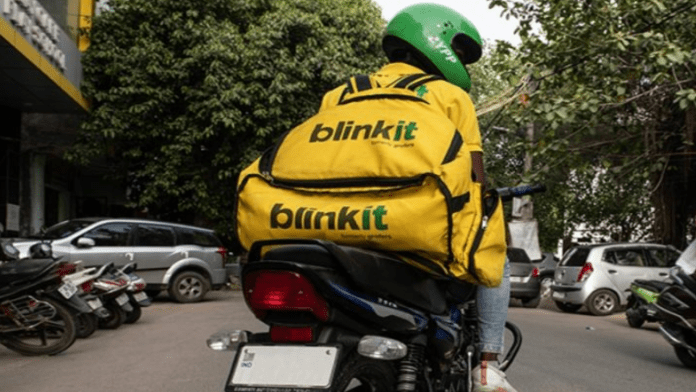BigBasket, owned by Tata, Zepto backed by Nexus Venture Partners, and Instamart of Swiggy, have experienced an increase in orders in the Delhi-National Capital Region due to a strike by Zomato-owned Blinkit’s delivery personnel protesting against a change in their payout system.
The three quick-commerce platforms have witnessed a surge in daily orders ranging from 25% to 50%.
According to Hari Menon, the CEO of BigBasket, the company’s quick-commerce vertical, BB Now, experienced a surge of 46% in daily orders in Delhi and 61% in Gurugram and Noida on April 13th and 14th compared to the corresponding days in the previous month.
“Normally, we would have grown by 18% in the same period,” he told the press, adding that similar growth numbers were observed this week as well.
An industry leader stated that Zepto has experienced a 40% surge in orders, whereas two individuals affiliated with Swiggy claimed that Instamart’s daily orders have increased by over 25%. To cope with the high demand, Zepto has recruited more than 500 delivery personnel in Delhi-NCR, as per the industry executive.
A representative from Blinkit stated that almost all of its dark stores, which are used by executives to collect orders for delivery, had reopened on Monday evening. However, the Blinkit app indicated that several stores were unavailable across multiple areas in Gurugram, Delhi, and Noida. “We continue to engage with all delivery partners to help them understand the new pay-out structure,” the spokesperson said.
Blinkit announced earlier on Monday that it was closing down some of the dark stores in Gurugram and Delhi, citing the strike by its delivery executives. The executives are protesting against the payout structure, which they allege is causing a decline in their earnings and are demanding its rollback.
Multiple Blinkit delivery executives in Gururgam and Delhi reported receiving a message on the Blinkit delivery partner app, stating that certain stores were being permanently closed as no work had taken place there for the past 3-4 days. The message also mentioned that the registration of the delivery executives with the platform was being terminated.
Quick-commerce platforms differ from food delivery platforms in that gig-workers who deliver for them are limited to specific dark stores that they have partnered with, unlike food-delivery platforms where they can deliver across different localities.
Last week, delivery executives of Blinkit went on strike in Delhi, Gurgaon, Faridabad, Ghaziabad, and Noida in response to the company’s modification of the payout system. The previous flat rate of INR 25 per delivery (plus INR 7 during peak hours) was changed to a minimum of INR 15 per delivery along with a distance-based component, which led to the strike.
According to delivery executives in Delhi and Noida, some stores in these areas were gradually resuming operations as some riders returned to work and delivered orders during early morning and late-night hours, despite the ongoing strike. However, operations in these stores remained slow for most of the day.
In a statement early on Monday, a Blinkit spokesperson said, “Only Gurugram and Noida remain majorly affected currently. We are working with the authorities to ensure that those of our riders willing to work in these areas are allowed to work safely”.
ICICI Securities published a report on Monday projecting that Blinkit could face a 1% revenue loss during the April-June quarter due to the ongoing strike. As per the report, the impact on the parent company Zomato’s revenue is estimated to be 0.15%.
According to ICICI Securities, Zomato needed to modify the payout structure to control its costs. “We think the change in delivery fee structure indicates Zomato’s efforts towards cost control. In our view, this would allow Blinkit to increase the delivery radius for its existing dark stores and thus improve its network coverage with limited capex spends.”
“Given that the strike (at Blinkit) is happening in the national capital and has already garnered political attention, we think the company should try to resolve the issue at the earliest. This could be through a combination of clearer communication on the expected change in earnings for delivery executives and/or some concessions on the delivery fee,” it said.



